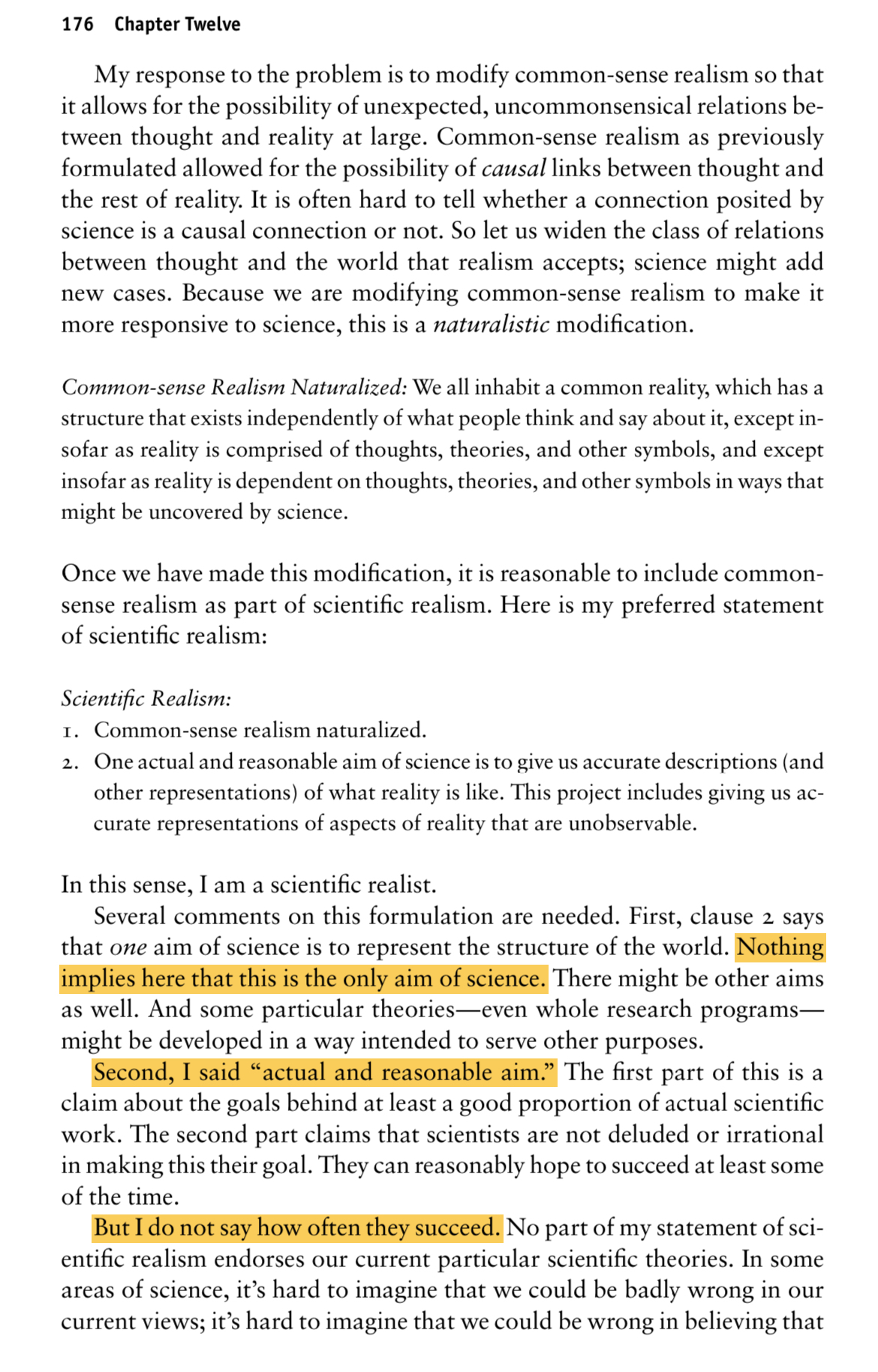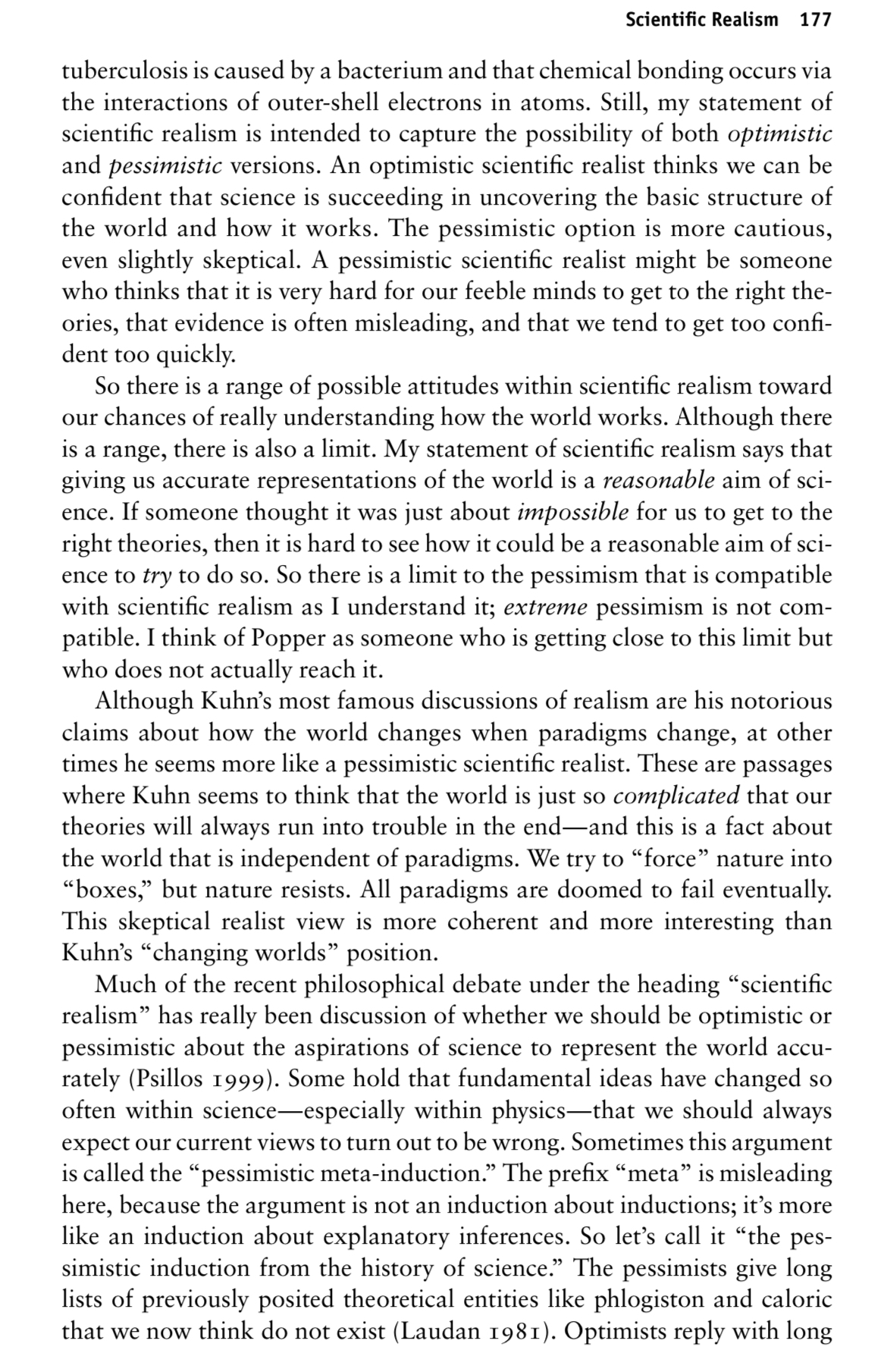so i've wondered for a long time about how leftists use the terms 'materialism' and 'idealism', and how it relates to those terms usage in broader philosophical discussions on epistemology.
i may be incorrect in my interpretations, but it seems to me that leftist uses of the term (even its usage in some of marx's writings, from what little i've read) are such that 'materialist' means 'understands that the material conditions of a society drive its development via dialectical processes' and that 'idealist' means 'focuses on artificial/socially constructed ethical or legal principles (such as 'freedom' and 'democracy' and 'rule of law' and 'free speech') rather than material conditions of society like quality of life, literacy, etc.'.
the broader philosophical definitions of these terms are slightly different, however.
epistemologically, a 'materialist' is someone who believes that we can (and do) directly apprehend the mind-independent external world. this is contrary to epistemological idealism, which argues that we can only ever know the contents of our own mind. we can use these contents to infer things about 'true reality' but can never truly verify them.
ontologically, materialism argues that all of reality can be described in terms of physics, or that all facts of the universe are causally dependent on or reducible to physical processes. this is again opposed to Idealism, which argues that existence is in some way irreducibly and fundamentally mental.
so my first question for you beautiful posters is, are my perceptions of these definitions and usages overall correct or incorrect? How exactly does Marx (or Engels or any other marxist philosopher) use these terms, and do they intend an epistemological, ontological, or other interpretation? am i missing something fundamental about the philosophical definitions or about the colloquial/leftist usage? What's the deal with that 'philosophy is pointless, the goal is to change the world' quote, is understanding reality not a benefit for efficiently manipulating it?
My next point, is that it seems to me like Marx and Engel's Dialectical Materialism, or at least the political program and methods of Socialism/Communism, are not necessarily at all incompatible with either philosophical Idealism or Materialism, in terms of epistemology or ontology. Neither is necessarily incompatible with basic empiricism, but is rather a difference in interpretation of what our empirical knowledge is. Whether reality is fundamentally mental or matter, it consists of opposing energies and dialectical processes that play out in our experience with the extrinsic appearance of physical matter. Whether the world is in the mind or 'really out there', our experiences of it are the same.
A bit ago i stumbled across this article that seemed to be making a similar point, a point i've never really seen made by anyone else before. I haven't read past the abstract yet, and It seems like someone random person's college dissertation or thesis or something so I'm probably not well read enough to interpret this without context, so i was wondering if anyone had seen any similar discourse? What would Marx, Engels, Lenin, Stalin, or Mao say about this line of thought? is it a heresy against socialism, a useless detour into pointless philosophical questions that serve no practical purpose for the revolution, or is it something potentially useful in framing Marxism's relationship to epistemology and ontology?




 is this mindset at its foulest). Remember, Marx inverted Hegel to come up with diamat, so you can always step back to there if you're wondering about things.
is this mindset at its foulest). Remember, Marx inverted Hegel to come up with diamat, so you can always step back to there if you're wondering about things.